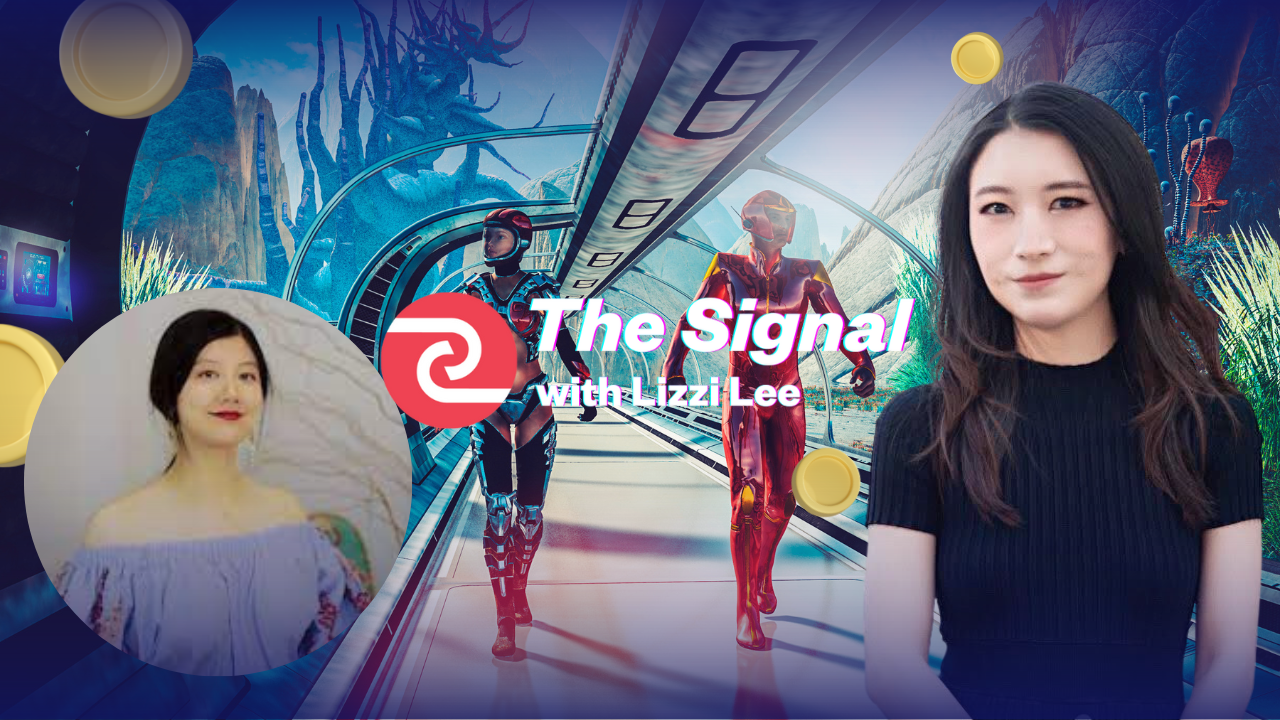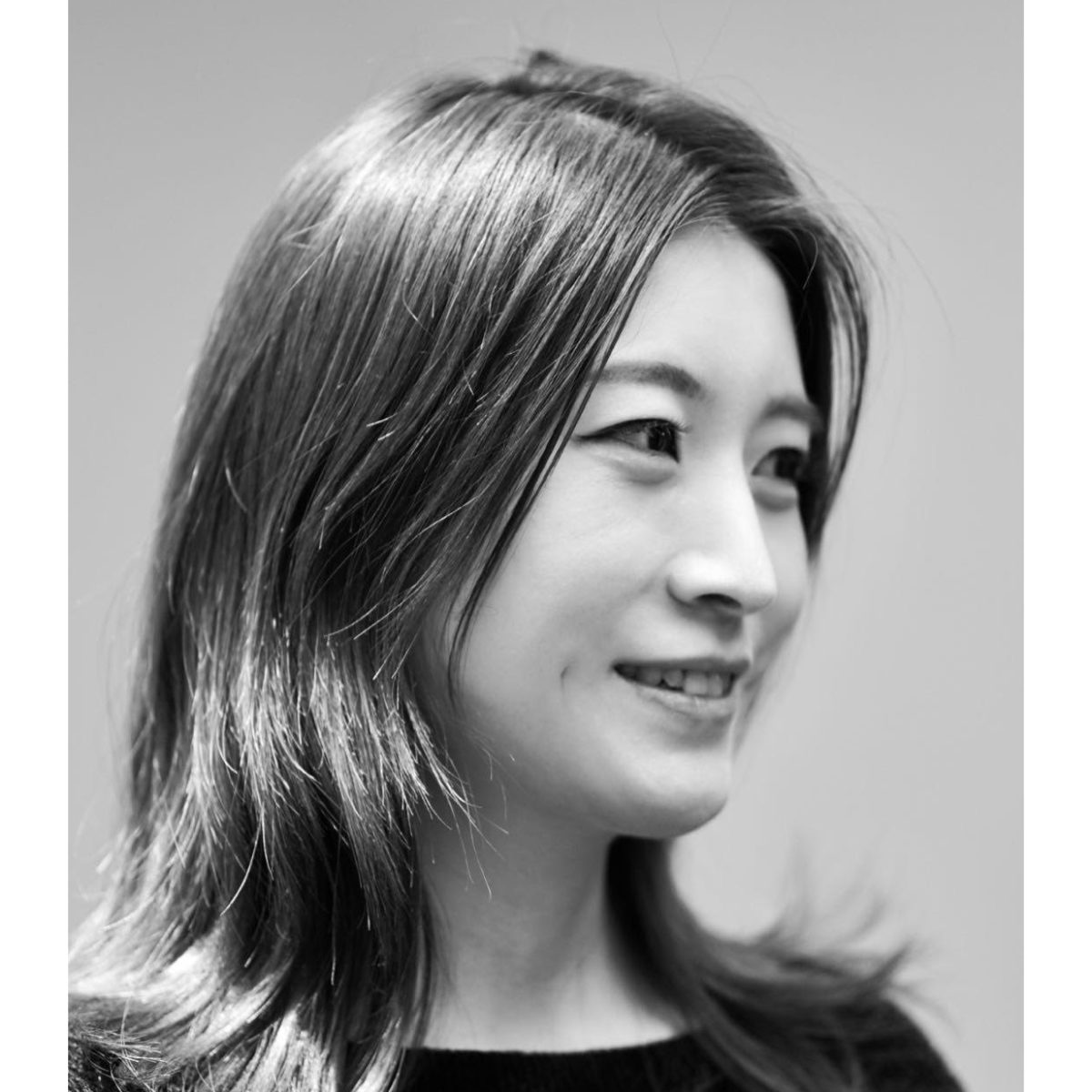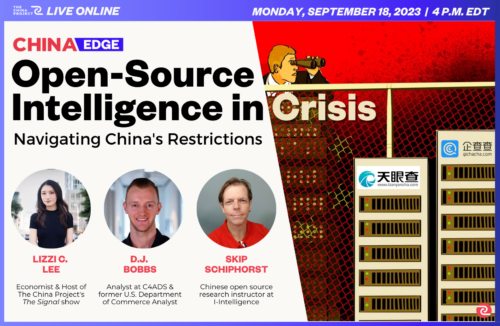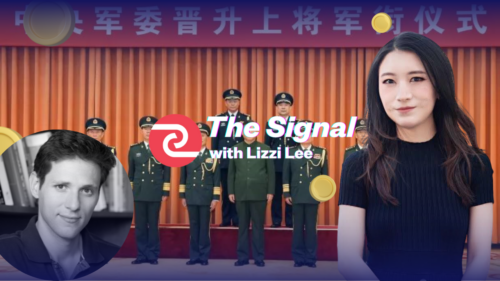The questionable ‘Chinese-ness’ of Chinese sci-fi | The Signal with Lizzi Lee
Emily Jin is an East Asian language and literature Ph.D. candidate at Yale working as a translator of Chinese sci-fi. Her most recent English-to-Chinese translation, "The Search for Philip K. Dick," the first biography of Philip K. Dick in Chinese, was published in July 2020 by Eight Light Minutes.

Below is a transcript of the video:
Lizzi Lee: Hello and welcome to this episode of Live with Lizzi Lee powered by The China Project. I’m your host, Lizzi. Joining me today is Emily Jin. Emily is an East Asian language and literature Ph.D. candidate at Yale. Thank you so much for joining me, Emily.
Emily Jin: Thank you, Lizzi, for inviting me. It’s my pleasure to speak to you.
Lizzi: So, Emily, first, tell our audience a little bit about yourself. How did you become a translator of Chinese sci-fi specifically?
Emily: Yeah. I think to go back to the beginning of the story, basically, you can kind of take this apart into, you know, translation and then sci-fi. In the beginning it’s kind of two very different things. I grew up a huge sci-fi fan. I basically just consumed all kinds of sci-fi and fantasy from both English sources and also Chinese sources. It’s kind of like my childhood hobby. It’s like my favorite genre. Then the other part of the story is that I actually kind of grew up also hopping between North America and China. I was raised bilingual. And as a result, I think I kind of never had a distinct mother tongue. And having this experience made the idea of translation very close to me that I feel like I’ve also been a translator for, like family, people in passing, that I’ve always been this kid who like cross between different cultures and languages. I feel like, translator, this identity to me is not just like a job, a professional choice, but it’s actually very close to how I perceive myself growing up. So eventually, after all this happened, I went to Wellesley College, like you, in 2013, and I’m a 2017 alum. And while I was there, Professor Mingwei Song from the East Asian Languages and Culture Department is very important to me as a mentor because he’s one of the best scholars who researches Chinese sci-fi. I should learn from him that there is like a very vibrant scene of scholarship going on and also professional opportunities. I think I eventually gathered my interest together while at Wellesley and then a month before I graduated, the American writer and translator, Ken Liu, actually came to Wellesley to give a talk, and that’s how I met him. Then I told him about my interest in literature and translation, so he eventually decided to take me on board and also mentored me when I first officially started to try out this freelancing slash gap year.
So then from 2017 to 2019 fall, about one and half years, I basically just work as a translator in this tiny sci-fi community, which was pretty amazing because I feel like people who, you know, I’ve basically grew up with their works, now they are actual people that I talk to and work with. A lot of them became very close friends. I was all just very immersed in this exciting world of like, literature then. Yeah. And then I applied for a Ph.D., then got into Yale. I’m now a fourth year PhD candidate at Yale, also working on researching Chinese sci-fi. So this is how everything kind of came together, that I was one of the, I guess one of the lucky few that got to combine my like close to her interest and hobby with the current kind of academic and professional track that I’m on.
Lizzi: Fascinating. I’m actually pleasantly surprised to see that you and me seem to be vexed by the same question whether we can see China as is rather than through some kind of a political lens. In a recent piece of commentary published in Sixth Tone, you actually post the question and you post it so well, can we just read it Chinese sci fi and sci fi and not just as some tortured political allegory or cultural window into China. I wonder if you can tell us a little more about how and why Chinese writers’ works are frequently viewed through the political lens.
Emily: Yeah, thank you for bringing this question up, because it’s actually something that I’m also navigating in my research as well. I’m actually just reading this book called The Chinese Question by Mae Ngai that talks about, you know, Chinese immigration, the global community of the so-called Chinese-ness. And just one quote that actually really hit home for me in the book basically said that the Chinese question was fueled by popular racism, theorized by elite thinkers and weaponized by politicians. I feel like this is like a very nice summary to basically what we’re dealing with. And sci-fi is just one of the many examples that exemplify this. I feel like in general, the way that contemporary Chinese literature is viewed in the Anglophone world especially really just says more about the interest of the audience than anything else. In other words, it’s kind of like a mirror that reflects whatever the audience wants to see the most. And of course, the current view on China from a Western audience is no doubt kind of hyperpoliticized, especially, you know, being based in America. So as a result, also, given the proximity of science fiction to the idea of like science, technology, so-called development, I think people are keen to kind of make this interpretation that somehow when you’re reading sci-fi from China, you are simultaneously getting a perspective into, for example, what China is doing in terms of its tech policy, which to me it’s a complete misunderstanding because sci-fi writers are foreign for most writers, right? Like if you don’t believe that American sci-fi what they describe in there is supposed to come true, You’re also kind of also not supposed to believe that Chinese sci-fi somehow represents like a distinct future for China.
I feel like this question it’s own just to bring it back again. It really says more about what you and Western audience, especially reading translated Chinese sci-fi, what they want to get out of that to kind of fuel their imagination or curiosity about China. I think that’s where a lot of the politicization comes from. And I think another thing that I always emphasize in the articles I write is that we really have to remember that beneath these master narratives that are constantly being thrown around, when we talk about policy and we talk about all sorts of legitimacy, we talk about conflicts and all of that. Chinese sci-fi is also foreign for most written by actual people who are individual thinkers who come from different parts of China, obviously with very different backgrounds and local concerns. So by highlighting the political side of sci fi to such an extent, you are also kind of putting these writers into this homogenous whole of making the assumption that every single Chinese writer of sci fi, or even just every single contemporary Chinese writer is somehow you have to be somewhat tortured politically. That’s why you’re producing these works, and that’s why they are being translated. But by doing so, you’re actually also taking away the entire kind of cultural factor, entertainment factor, and also the fact that sci-fi as a genre is actually, you know, translated into Chinese from American, from French classics. So a lot of the current generation of writers actually grew up reading these translated works. So their works is more reflective of their lineage as global citizens really reading these translations than people who came from a place of this, like a centralized, this kind of pure Chinese this. I think that’s my brief answer to this very kind of complicated question. Yeah.
Lizzi: Super insightful. So, you know, in my daily work, I do a little bit of translation, and I’m frequently puzzled by the difficulty of the challenge of translating from one language to the other. Do you stay true to the original meaning? Do you do some sort of, you know, linguistic gymnastics so the language somehow sounds more pleasant to the Western ears, so to speak. I wonder, in your career, what do you think is the most challenging aspect of translating Chinese sci-fi works?
Emily: Thank you for another great question, and I’m sure you resonate a lot with this in translation. In theory, call this either foreignization or kind of domestication. You’re always trying to make a choice between, are you just completely catering to your target audience or preserving some kind of authenticity of the original is the most important part? I think for me, it’s really just case by case. And I feel like another common well, I wouldn’t say misunderstanding because it’s different for everyone, but I think people often ask me whether the hardest part is translating the technical terms, especially in sci-fi, to kind of pin down the kind of technologies they’re describing… all of that. But actually, no, because I feel like for those terms, it’s like you can basically throw this paragraph into like an AI translator and you get like a good approximation. But sci-fi actually, just like any other literary genre, the hardest part to translate is always the writer’s own style. Their poeticness, their cultural nuances. And once again, where do you draw the line? Like. Like what you said, where do you draw the line between producing a translation that is, you know, overly “Westernized,” that you’re fitting it too much into what we assume is like a standard, you know, like American market’s appreciated kind of work. How much do you work on doing that? So the work would just be received seamlessly by an audience. And to what extent do you try to preserve the author’s more original intentions and also the parts of Chinese culture? But here you also consider the question of, okay, if you’re like domesticating it too much. Obviously, this also demonstrates a hierarchy in that translating from Chinese into English it means that you always have the also powerful Anglophone market serving kind of as the center of literary circulation globally. But if you, you know, foreignize it too much and preserve too much of the, you know, like kind of the original connotations, it’s also likely that your audience might read you from more of like an orientalizing perspective, unfortunately, to see that, okay, I’m not actually reading your work for the sake of reading good sci-fi, but I’m actually trying to consume this exotic China from this translation. I feel like that’s the issue that all of us really working not just in sci-fi, but in translating contemporary Chinese literature to also not just an academic audience, but like a broader market. We’re all really facing the same issue.
Lizzi: So this is insightful. Many in our audience are interested in Chinese literature, but you know, when they talk about Chinese sci fi, oh, you know, they sort of know The Three Body Problem and they just draw a blank after that. So for our audience, we’re interested in learning more about Chinese sci fi works beyond The Three Body Problem. Where should they start? What are some of your recommendations?
Emily: I’m going to shamelessly add in plugs for a stuff that I’ve been working on. I feel like in general, having a broadened and diverse horizon is really the most important part to really look past Liu Cixin and the myth surrounding him. Because as you also know, I think he himself and his works have kind of also become this topic of study. He’s more like a phenomenon now. But I think, in fact, Chinese sci-fi is in itself a vibrant scene. And also not to mention that the genre of sci-fi in China is now being vastly expanded. It’s moving past the classic kind of tropes that we consider to be sci-fi. It’s also heavily blending in with mainstream literature. Right now, when we talk about sci-fi, it’s more kind of like the nuance is more in how it helps us conceptualize the feature, how it kind of mediates the relationship between human technology. Instead of being simply as a Pulp Fiction kind of thing. I think a few places to start. First of all, I actually worked on a really cool collection that features all Chinese female and non-binary creators. That’s translated from Chinese into English. It’s called The Way Spring Rises and Other Stories, and is published by Tordotcom in New York City. And actually our paperback version just came out a few days ago. So this one is actually a collection that tries to, you know, open up the genre of sci fi to include also more fantasy, more like kind of general speculative fiction. And I feel like by doing this collection or trying to showcase, you know, science fiction, also moving past the heavily male-dominated literary scene. It’s not really just about Liu Cixin. And also, when we think about contemporary Chinese fiction in general, it’s also not all about like Mo Yan and Yu Hua, the big names. So this one is, you know, the younger generation, also prominently, not men. So that’s kind of where we’re trying to go in the future. And in general, Clarkesworld magazine, which is one of the best American sci-fi magazines have been publishing, translated Chinese science fiction for about a decade. So it’s actually the powerhouse of all the translations that emerged. And then finally, my personal favorite novel called Waste Tide. By Chen Qiufan, who you also might have heard before, it’s actually this kind of cyberpunk, near-future novel that describes the environmental concerns on electronic waste in southern China, which combines locality, local traditions, and concerns with this global perspective that everyone’s kind of involved.
Lizzi: Fascinating list, and we’ll make sure to include a link to the references you just mentioned so our audience can check it out.






